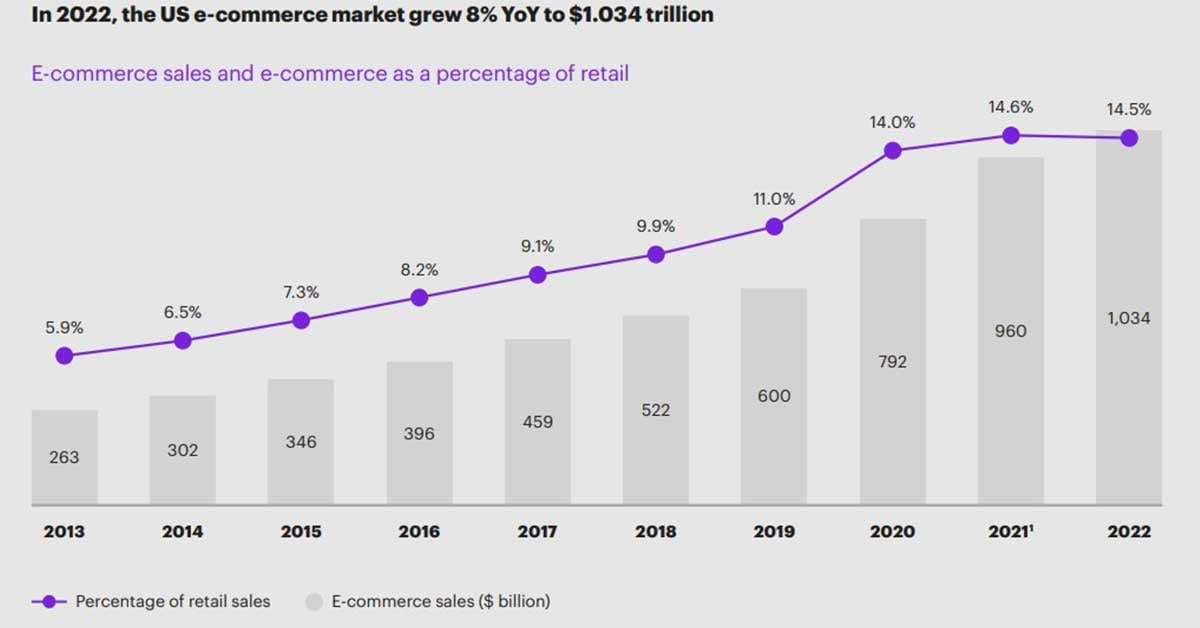Supply Chains Have Adapted to Drive Resilience After Two Years of Global Volatility
by Staff, on Jul 10, 2023 4:11:25 PM

There are still some residual effects from the pandemic in supply chains. U.S. business logistics costs are increasing, while the trends of reshoring continues. Sales in e-commerce sales continue to grow, while investments in technology by 3PLs are outpacing those of shippers. With these supply chain trends and more, supply chains continue to be resilient after two years of global volatility, according to the 2023 State of Logistics Report® from the Council of Supply Chain Management Professionals (CSCMP). The annual report offers a snapshot of the American economy via the lens of the logistics sector and its role in overall supply chains.
The report is a comprehensive compilation of leading logistics intelligence from around the world and shines a spotlight on industry trends and key insights on ever evolving supply chains across a number of sectors.
While last year’s report highlighted the need to get back in sync, the 2023 version focuses on how logistics operations can build long-term resilience in an effort to best serve customers through a variety of distribution channels.
Among the key findings of this year’s report:
- A key report statistic, U.S. business logistics costs, shows an increase. USBLC now stands at a record $2.3 trillion (was $1.85 trillion last year), representing 9.1% of national GDP—the highest percentage of GDP ever.
- While consumers are continuing to return to stores, e-commerce sales are not slowing down. In 2022, the U.S. e-commerce market grew by 8%, to $1.03 trillion (was $871 billion). It is now 14.5% of the entire U.S. retail market.
- Third-party logistics providers are investing more capital into their technology offerings, as opposed to shippers (companies that provide goods and services). Respondents indicated that 96% of 3PLs have migrated to the cloud (shippers indicated 86% of them have), while 80% of 3PLs are investing in IoT (77% for shippers).
- The reshoring movement continues. For a number of businesses, reshoring has gone from a strategic possibility to a market reality. According to the Kearney Reshoring Index, American imports of Mexican manufactured goods have grown by 26% (dating back to spring 2020).
"As the logistics sector moves forward from years of supply chain challenges and bottlenecks, our report shows that now is the time to begin thinking seriously and proactively when it comes to building strategic capacity," noted Balika Sonthalia, Senior Partner at Kearney and co-author of the 2023 State of Logistics Report. "Although the market has swung back in shippers' favor—to the detriment of carriers—we cannot emphasize enough the importance for all industry participants to begin planning for geopolitical tensions, cybersecurity threats, climate change and related natural disasters, slowing e-commerce growth, and global recessionary factors."
Andy Moses, Senior Vice President of Sales and Solutions, Penske Logistics says: “We have seen a dramatic run up in supply chain costs, to a record $2.3 trillion. Third-party logistics providers like Penske play a critical role in helping shippers navigate an increasingly volatile logistics market. Shippers are actively seeking solutions, which is currently reflected by the strength of our development activity.”
The 34th Annual State of Logistics Report® is available to download at cscmp.org.
Like this kind of content? Subscribe to our "Food For Thought" eNewsletter!
Now more than ever, professionals consume info on the go. Distributed twice monthly, our "Food For Thought" e-newsletter allows readers to stay informed about timely and relevant industry topics and FSA news whether they're in the office or on the road. Topics range from capacity, rates and supply chain disruption to multimodal transportation strategy, leveraging technology, and talent management and retention. Learn More



